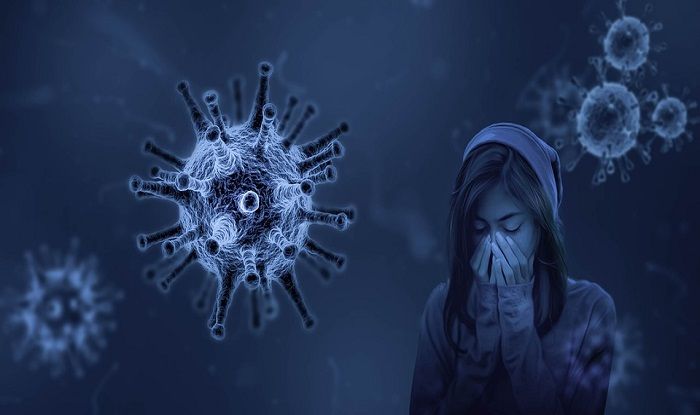


Mucormycosis is a critical fungal infection, which is caused by mold from the family called Mucorales. This fungus is present everywhere - in the atmosphere, ecosystem, soil, etc. The infection occurs mostly by inhalation where it enters the sinuses and the lungs or it can enter the body if a person has a burn, cut or abrasion on the skin.
While fungal spores are present everywhere, immuno-competent patients (a person who has a healthy immune system) are not affected by them. However, people who are immunocompromised (their immunity is suppressed or not all that great) for example, people with a condition called neutropenia – which means the patient has a low WBC count, an HIV or cancer patient or a patient who's on immunosuppression steroids, especially if someone has uncontrolled diabetes mellitus, are most at risk with this fungal infection.
If any of the above-mentioned patients inhale the fungal spores and ingest it, they can have a very lethal and life-threatening infection, because it is very Angioinvasive. (means that it is a predilection or preference for the blood vessels.) And once it affects the blood vessels, it causes necrosis of the tissue and the blood supply does not reach the tissues. After which the patient can have an aggressive infection, for which they would require treatment with an anti-fungal and/or surgical debridement which can give rise to loss of tissue or an organ and also has a high mortality rate.
The combination of COVID-19, with decreased immunity and the steroids used ,predisposes a patient to Mucormycosis. It affects the sinus, the eyes and can even move to the brain which is called as rhino-orbito-cerebral Mucormycosis (ROCM). If it affects the eye, the patient may have to get evisceration done (disembowelment of the eye) in spite of treatment. Before COVID-19 infection, mucormycosis took around 15-30 days to spread but after COVID-19 infection the spread occurs within just 2-3 days. Early clinical suspicion on symptoms such as nose obstruction, swelling in the eye or cheeks, and black dry crusts in the nose should immediately prompt a biopsy and start of the antifungal therapy as early as possible .But one important thing is that mucor is not spread from person to person, it is not contagious.
In order to prevent it, patients who are immunosuppressed should wear a mask, preferably an N95, because these spores are all around us. When they're doing an activity like gardening or they're touching the soil, they should use gloves or long sleeves clothes, so that the spores don't enter the body somehow. Also, if a person is on steroids, the dosage of steroids should be decreased.
The antifungals used to treat Mucormycosis are Amphotericin B, posaconazole and isavuconazole, but the mainstay for therapy is liposomal amphotericin B and the dose is almost three to five milligram per kilogram per day. The cost of one day therapy can be almost Rs 10,000. The other antifungals which are mentioned are much costlier, isavuconazole capsules can cost Rs 43,000
The fight of survival for coronavirus patients just got tougher, with Mucormycosis preying on patients battling Covid 19 or those recently recovered .
